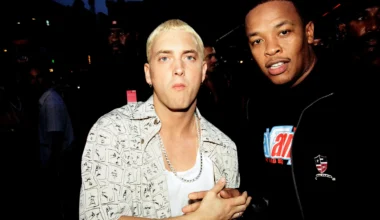2011’s The Rum Diary is an adaptation of Hunter S. Thompson’s novel of the same name—a book that might have remained buried forever if not for Johnny Depp. It was Depp who unearthed the manuscript from Thompson’s notoriously chaotic archives, bringing it to light decades after it was written in the early 1960s. A fitting discovery, considering Depp’s deep admiration for the legendary gonzo journalist. The film itself only came to fruition because of Depp’s persistence—after all, he has a habit of portraying his idols.
Thompson’s legacy is filled with wild stories, but one of the more amusing ones comes from Norman Mailer’s The Fight, which documents the legendary ‘Rumble in the Jungle’ bout between Muhammad Ali and George Foreman. In it, Mailer recalls encountering a skinny, sunglasses-clad Rolling Stone journalist who always seemed to be under some kind of influence. That journalist? Hunter S. Thompson. That character? Paul Kemp, the clear self-insert in The Rum Diary.
The film, in some ways, serves as a spiritual prequel to the cult classic Fear and Loathing in Las Vegas, but unlike that film, it never managed to cultivate a loyal following. Both films flopped at the box office and met mixed critical reception, but while Fear and Loathing eventually gained a reputation as a gonzo masterpiece, The Rum Diary simply faded into obscurity.
Depp’s comments on the film’s commercial failure didn’t help either. He famously remarked, “I believe that this film, regardless of what it makes in, you know, Wichita, Kansas, this week – which is probably about $13 – it doesn’t make any difference… I think it’s an intelligent film… And a lot of times, outside the big cities in the States, they don’t want that.” Naturally, this didn’t sit well with the people of Wichita.
Carrie Rengers, a business columnist for the Wichita Eagle, reported on the backlash, quoting local film industry figures who weren’t amused. Bill Warren, a Kansas-based cinema owner, dismissed Depp’s remarks outright: “That’s just sour grapes. Last time I heard, it didn’t do well in New York, either… It wasn’t a very entertaining movie, period.”
The film was helmed by Bruce Robinson, best known for directing Withnail and I—a film Depp once called “perfect.” Robinson, a man with his own eccentric passions, even claims to have cracked the Jack the Ripper case and published a book titled They All Love Jack: Busting the Ripper. His approach to The Rum Diary was just as unorthodox. He reportedly read the novel, then scrapped it entirely, rewriting the screenplay purely from memory. Whether he successfully captured Thompson’s voice remains a matter of debate.
Thompson himself remains a divisive figure, as do the films based on his work. His writing blurs the line between journalism and fiction, with tales of excess, drugs, and reckless adventure woven into supposedly serious commentary on politics, culture, and the decay of the American Dream. His ‘nonfiction’ is often closer to an unhinged memoir than objective reporting. Some find it brilliant; others see it as self-indulgent chaos.
The same can be said for The Rum Diary. Was it an underrated gem or just another misfire? Either way, it seems to have disappeared into the rearview mirror of film history—perhaps just the way Thompson would’ve wanted it.






